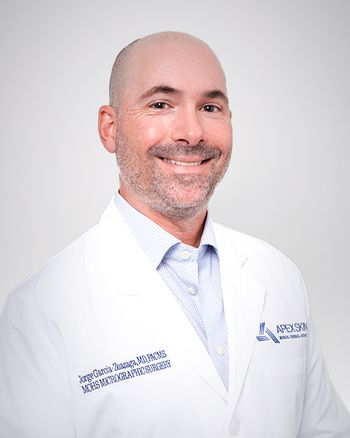
Selling your practice: Grow, prepare early and assemble your team
Todd Petersen, CEO of VitalSkin Dermatology, knows that selling a practice can be intimidating, and offers pearls to guide you through the process.
Todd is the Chief Executive Officer of VitalSkin Dermatology, a world-class dermatology and aesthetics practice management firm., Mr. Petersen has over two decades of C-suite experience, including CEO, COO, CFO, and CHRO roles. He is a growth expert with a passion for new entrepreneurial challenges, revenue growth, improving operations, and building teams and partnerships.
Selling a practice can be intimidating, but it doesn’t have to be. When talking about the sale of a practice, I like to use the analogy of selling your home. Most people have not been involved in the sale of a medical practice, but many have been involved in the sale or purchase of a home. It turns out, there are a lot of similarities between selling a medical practice and selling a home. Once individuals realize this, it demystifies the sale process.
Continue to Run, Invest In and Grow Your Practice
When a physician starts to contemplate selling their practice, it is important to realize this can be a long process. As such, a physician should continue to run, invest in and grow the practice. Using the home sale analogy, imagine if a homeowner decides they are going to relocate in a few years. To save money, they quit investing in their home. They pass on repairing the roof after a storm, they stop taking care of the yard, and they quit servicing their mechanicals. Unfortunately, the roof damage causes the plywood on their roof to rot, water starts leaking through the rot, causing ceiling damage and mold to set in. The yard becomes inundated with weeds and the bushes become overgrown, detracting from the curb appeal. Not servicing the mechanicals causes them to age prematurely. When the house is put up for sale, it sits on the market longer than it should, the offer price is less than expected, and the results of the inspection report cause them to make further price concessions.
Similarly, one of the classic mistakes physicians make in advance of selling their practice is that they slow down and quit investing in the business. When a doctor cuts back on their hours and decreases their patient schedule, it reduces the practice revenue and profitability. Resulting access issues cause its reputation with patients to suffer, and it can increase employee turnover. All of these factors contribute to reducing the value of the practice.
Doctors who want to realize the full value of their practice should strive to maintain their schedule. Additionally, managing online reviews is critical. Potential buyers will quickly analyze a practice’s online presence to determine its health and reputation. A practice with a positive online reputation is worth more than one with a poor online reputation. It speaks to patient loyalty and the ability of the practice to generate recurring revenue from repeat patients. In a similar vein, potential buyers want to purchase a practice with a great team already in place. A great team will help ensure the practice keeps producing and patients keep returning after the sale. Offices with high employee turnover and poor Glassdoor ratings will be red flags to potential buyers, and it will likely reduce the value of the business. We recommend sellers continue to invest in and train their staff. It will lead to higher retention, production and value creation.
One of my favorite television channels is HGTV. I am especially drawn to the show “Love It or List It.” The show has two antagonists: Hilary, who works with homeowners to repurpose and redesign their home in hopes of them “Loving It”; and David, who works with homeowners to find a new home in hopes of them “Listing It.” Hilary is given a budget to improve the current home. The home improvements will either entice the homeowners to stay, or it will help the homeowners create new value and sell the home faster. As a result, the changes she makes are well considered and create new value.
Similarly, practice owners should continue to look for strategic investments that will renew their business and help improve its value to a buyer. With an adequate time horizon, perhaps the practice could invest in an aesthetic laser and the required training for the doctor and staff. This would allow the practice to add aesthetic services such as removal of benign pigment lesions, unwanted hair or tattoos, etc. The additional service capability, revenue and equipment could increase the value of the practice. Additionally, consider adding a mid-level provider to improve patient access, revenue and profitability.
As Lou Holtz is quoted as saying, “In this world, you are either growing or you’re dying, so get in motion and grow.” I believe this applies to your practice. Until you sell it, keep growing it. If you don’t grow it, it will start to die and lose its value.
Prepare Early
If selling a practice is part of a physician’s exit strategy for retirement, they should start planning to sell the business three to five years before their targeted retirement date. Why start planning so far in advance? First, most buyers will want the seller to help transition the practice. The desired transition period could be anywhere from one to five years. Generally, the longer the transition period, the more valuable the practice. The long transition period helps ensure patients will stay with the practice.
Second, most buyers will look back three years to help them project the future value of a practice. As such, preparing three years in advance of a sale is not too early. Early preparation allows the seller time to identify potential issues and address them prior to placing the practice up for sale. For example, early preparation allows a practice to conduct a billing audit to identify any potential regulatory compliance issues or to consult with their tax accountant to work through any potential tax issues.
Third, as noted previously, early preparation allows a practice ample opportunity to add new services or new practitioners, move to a better location, or make other strategic improvements designed to increase its value.
Assemble a Team of Professionals
Selling a practice has long-term financial and legal consequences, and in our opinion, it should not be done without expert advice and guidance. At a minimum, we suggest sellers find an attorney with deep transactional experience, preferably in the health care space. Selling a medical practice is not like selling other businesses. The Medicare Stark law and anti-kickback rules and laws governing the security, retention and disposition of patient medical records add a layer of complexity to selling a medical practice that does not exist with other businesses. It is critical for a physician to pick an attorney who has adequate health care knowledge.
Furthermore, if the physician’s attorney or legal firm does not have tax law expertise, they will also need to find a tax accountant who can help navigate the tax consequences of a sale. These consequences will result from the structure of the sale, previous tax elections the physician made, the legal structure of the practice, the presence of real estate, and a host of other factors. These are complicated issues and will have a significant financial impact on the overall transaction.
Choosing local legal counsel or accountants may also be helpful in identifying a local buyer, such as other dermatology practices, multi-specialty clinics or hospitals. However, if a wider net must be cast, the physician should consider engaging a health care broker experienced in the physician space. Think of a health care broker much like a real estate broker; they are adept at marketing a physician practice and finding potential qualified buyers.
Assembling a team of qualified professionals to provide expert advice will not be cheap. However, solid expert advice is necessary to achieve the best sales price and limit future financial and legal exposure. The old adage “penny wise and pound foolish” applies here.
Newsletter
Like what you’re reading? Subscribe to Dermatology Times for weekly updates on therapies, innovations, and real-world practice tips.











